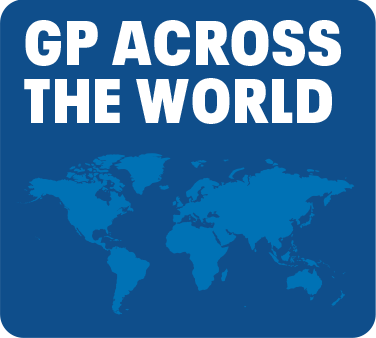UK GP pay is good compared with international peers. But moves to change methods of funding should be met with caution, finds Jaimie Kaffash

Pay might be the first element that any GP looks at when comparing themselves with peers abroad. But Jake Beech, policy fellow at the Health Foundation, cautions: ‘Any attempt to compare GP pay should be taken with a pinch of salt – there’s a lot of nuance when looking at these sorts of figures.’
So many factors are involved – taxation, benefits and, in the majority of countries where practices are profit-making entities, even business acumen. On top of this, the cost-of-living crisis in the UK has strengthened the pound, thereby making UK GPs appear to be growing wealthier compared with their international peers, even if the reality feels much different.
The closest we get to a valid comparison is the OECD’s review of GP pay compared with the national average salary. ‘We are probably better paid than some others,’ says Professor Clare Gerada, outgoing president of the RGCP. This is especially true for GP partners, according to the OECD. Only German GPs’ pay compares better with the national average – and it is telling that they also work the longest hours and are the closest in terms of poor morale.
The Health Foundation report Stressed and Overworked – which analysed Commonwealth Fund survey figures – found UK GPs ‘reported greater satisfaction with their income from medical practice’ than with other aspects of their working lives, such as workload, work-life balance and time spent with patients.
Still, only Australian GPs are less satisfied with their pay, leaving the UK ninth out of the 10 countries surveyed in this respect. This might reflect dissatisfaction with the job as a whole, with UK GPs perhaps thinking that their pay was not enough for the stress and workload they face. After all, GP partner pay increases when there are fewer partners to share the global funding with, yet most partners would rather take on new recruits.
Funding mechanisms
Perhaps a more fruitful comparison can be found in how general practice is funded in other countries. Over the past few years, there have been calls for UK general practice to adopt co-payments, item-of-service funding and even a wholly salaried service. These aren’t trailblazing ideas – different countries implement variations of all three.
In the majority of western European countries, general practice is free at the point of delivery. But in many countries, funds are channelled to the GP through insurers. France has a state-run insurance scheme that covers most of a patient’s fees, with the balance covered by employer-based insurance. In the Netherlands, funds to GPs come through insurers funded by mandatory health insurance fees and taxation of income. German residents join a health insurer called a Krankenkasse and pay mandatory monthly insurance contributions – 14.6% of gross income, split between the patient and the patient’s employer, up to a maximum of €5,831 (£5,030) per month.
In Ireland, there are costs for many residents, although the state funds free healthcare for lower-income families, and for children and the elderly. This year, Ireland expanded the number of residents eligible for free healthcare, including covering all children under the age of eight (up from six).
Insurance-based schemes – even state-funded ones – have their drawbacks. Dr Mary McCarthy, a former GP in Shropshire and former vice-president of the European Union of GPs (UMEO), says: ‘One of the complaints of GPs who work under insurance systems is complexity and the time taken with the bureaucratic nonsense in getting permission to treat a diabetic, for example.’
Even state-backed insurance schemes have a mix of capitation and fee-for-service funding. As recently as last year, BMA GP Committee negotiators hinted they would consider such a system, in the wake of a number of motions in favour at LMCs conferences.
But in the US, where healthcare is (in)famously insurance-based, and GPs are paid though fees for service, there is a movement to implement a hybrid model. A Commonwealth Fund blog stated a ‘consensus has emerged among researchers, clinicians, and primary care experts’ that an increasing proportion of healthcare spending should be given to primary care, with hybrid payment models that ‘incorporate a combination of per-member per-month capitated payments to grant providers more flexibility in providing the right care at the right time, and fee for service for high-value, underprovided services’.
Beccy Baird, senior fellow at The King’s Fund, says: ‘In general, fee for service isn’t a great way of incentivising good practice and preventative care. It’s a bit like payment-by-results in hospitals. If you pay for activity, you’ll generate activity.’
That said, a recent Commonwealth Fund survey of 10 high-income countries found that regardless of funding models, the majority of GPs felt they spent too much time on admin work, from US (91%) to Germany (97%).
The simple truth may be that GPs are satisfied when funding is adequate, regardless of the mechanism. Dr McCarthy says UMEO research has found ‘the country that was happiest with its method of payment was Switzerland, which has a fee-for-service payment. Even though they complained about the bureaucracy, they still felt that they were adequately recompensed for their time if they spent longer with a patient because they were more complicated or they had multiple pathologies.’
Should the Labour Party be elected in 2024, UK GPs face the possibility of a fully salaried service; Portugal, Spain and Israel already have such a system, among other countries. ‘The government employs GPs in Portugal, and there are some good things,’ says Dr McCarthy. ‘They’re not allowed to work more than 40 hours a week, for instance. But they’re also not allowed to work part time. They have all their premises built for them. So they can just say, “I want to set up in north Lisbon, I need premises” and the government will build them a state-of-the-art surgery.’ But there is obviously a downside: ‘They can also say “this is the money that you’re making”.’
Spain provides a red (and yellow striped) flag in terms of a wholly salaried service. Pay hovers around the £60,000 mark, yet Spanish GPs have recently taken strike action, with GP leaders stating they are working 60-hour weeks despite their relatively modest salaries. It may be that funding models and structural changes can only bring limited improvements to general practice. Real change might only be possible with increased funding, a stronger overall health service and real efforts to tackle societal inequality – all of which is far harder than introducing a fee-for-service system.
Pulse October survey
Take our July 2025 survey to potentially win £1.000 worth of tokens














In General Practice by far the riskiest and hardest part is seeing lots of patients ( not sitting in lots of meetings) . The payment for GPs has to be linked in some way to the number of patients seen ( it isn’t at the moment)
Two things here- is it Austria or Australia dissatisfied with their pay? Assuming it is Australia what will the thousands of doctors leaving the UK for ‘better pay and conditions’ think about this? It’s expensive abroad and don’t forget you have to pay for health treatment for you and your family. Good luck if you go but I hope you stay and the next government starts to redress 13 years of intentional NHS defunding. Yes I know but ever the optimist.
@David Mummery – totally disagree with this approach. Rapidly seeing a large number of patients without necessarily giving each enough time to potentially “do the job properly” is not a stable basis for remuneration